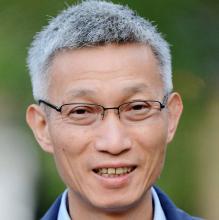You are here
Fallen tiger, shaken dragon
Apr 05,2014 - Last updated at Apr 05,2014
Less than 18 months after becoming general secretary of the Chinese Communist Party, Xi Jinping is poised to cage the biggest political “tiger” — a corrupt top official — in the history of the people’s republic.
Although rumours of the imminent fall of former internal security chief Zhou Yongkang have been swirling for months, many observers remained unsure whether Xi would prosecute Zhou and thus break the party’s long-established unwritten rule of immunity for sitting or retired members of the Politburo Standing Committee.
But doubts about Zhou’s fate have now been dispelled by a recent flurry of uncensored news stories in the Chinese media that revealed shocking details of corruption involving Zhou’s family and former subordinates.
One newspaper reported that the authorities recently searched the homes of Zhou’s two brothers. Though these stories have yet to implicate Zhou directly, it will be only a matter of time before the Chinese government officially charges him with corruption.
Whispered reports are even more lurid. Zhou is said to have plotted to murder his first wife, and there are rumours that at the height of last year’s scandal involving disgraced former Chongqing party boss Bo Xilai, he attempted to assassinate Xi in the leadership compound at Zhongnanhai.
Based on what the Chinese press has disclosed thus far, it is clear that the Zhou case will be the ugliest and most sensational scandal involving a senior party leader that the country has ever seen.
It will make Bo, an ally of Zhou and a former politburo member who was sentenced to life imprisonment for corruption, look like a petty thief.
Apparently, the Chinese government is meticulously building a case against Zhou by pursuing two critical leads.
The first one targets his son, Zhou Bin, a businessman who has amassed a huge fortune through shady deals and possibly criminal activities.
With so many officials and private businessmen eager to curry favour with his father, Zhou Bin had no difficulty cashing in.
His business activities include brokering sales of oil-field equipment to Iraq (causing huge losses for Chinese state-owned oil companies); construction of hydroelectric power stations in Sichuan (where his father was the provincial party boss from 1997 to 2002); providing information technology for 8,000 state-owned gas stations; and investments in real estate, oil exploration, and toll roads.
The most damaging revelation so far concerns Zhou Bin’s friendship with a billionaire mafia boss, Liu Han, who is now standing trial for organised crime and murder. Liu made his fortune with Zhou Bin’s help. In one case, the younger Zhou allegedly used his political connections to help Liu sell two hydroelectric power stations to a state-owned power company for a profit of ¥2.2 billion ($330 million).
The second lead centres on Zhou Yongkang’s former lieutenants.
A tactic favoured by Chinese anti-corruption investigators is to detain junior officials who have worked closely with their primary target. Typically, these minions are threatened with long prison sentences, or even the death penalty, unless they cooperate.
In this case, a dozen officials who worked for Zhou in the energy sector in Sichuan and in the ministry of public security (where Zhou was minister from 2003 to 2008) have been arrested. Most ominously for Zhou, the officials include two of his former executive assistants, who presumably have intimate knowledge of Zhou’s activities.
When the Chinese government formally announces Zhou’s arrest — probably after the conclusion of the annual session of the National People’s Congress in mid-March — the revelations of the rot within the Chinese party-state will stun even the most jaded observers.
What Zhou, his family, and their cronies have done can be described only as insatiable looting and blatant gangsterism.
More important, the Zhou scandal will almost certainly implicate a record number of senior officials. As of now, one minister, two provincial vice governors, one vice minister, and several senior executives in state-owned oil companies have been detained. More officials are expected to fall in the coming year.
For Xi, ensnaring Zhou in his anti-corruption net will likely provide a boost in his popular standing. He can show a sceptical Chinese public that he has the political will to take down one of the country’s most powerful politicians. Moreover, vanquishing a once-untouchable politician will leave no doubt about Xi’s personal authority.
For the rest of the world, the unfolding Zhou scandal reconfirms a profoundly worrisome fact: the Middle Kingdom remains deeply corrupt. Caging a tiger will not destroy a vampire.
The writer is professor of government at Claremont McKenna College and a non-resident senior fellow at the German Marshall Fund of the United States. ©Project Syndicate, 2014. www.project-syndicate.org












